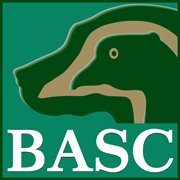 BASC is fighting plans by members of a global conservation organisation to impose a worldwide ban on lead ammunition.
BASC is fighting plans by members of a global conservation organisation to impose a worldwide ban on lead ammunition.
A motion tabled ahead of the International Union for Conservation of Nature’s (IUCN) world congress demands that lead should be replaced with ‘non-toxic alternatives’.
Any decision on Motion 090 would not immediately become law, but would be a clear policy-driver for the IUCN’s 1,300 member organisations, which includes Defra and other government agencies across the world. It would also guide the IUCN’s international network of 16,000 experts.
BASC has worked closely with FACE – the European Federation of Associations for Hunting and Conservation – to amend the wording of the motion before it is submitted for final decision at the IUCN World Conservation Congress in September.
Crucially, BASC and FACE have ensured that the motion is currently not extended beyond wetlands, although the original proposers are attempting to persuade the IUCN to revert to a previous version of the motion which applies beyond wetlands.
Under the African Eurasian Migratory Waterbird Agreement, signatory countries – of which the UK is one – are obliged to legislate to restrict the use of lead shot over wetlands. In the UK, regulations have been introduced restricting the use of lead ammunition over wetlands and for waterfowl.
The UK’s largest shooting organisation has written to more than 200 shooting organisations worldwide alerting them to the motion, briefing them on the unintended consequences of a ban and encouraging them to work with their governments to oppose the motion.
BASC chairman Peter Glenser said: “Our position on lead ammunition continues to be ‘no sound evidence, no change’, and we will vigorously oppose any attempts to place disproportionate and unsubstantiated restrictions on the use of lead ammunition for sporting shooting.
“BASC has serious concerns about this motion, which goes far beyond the position already established by national wildlife agencies and national and international food safety agencies.”
Dr Conor O’Gorman, BASC’s policy development manager and a member of IUCN’s Sustainable Use and Livelihoods Specialist Group, said: “This motion is based on ideology and emotion, not on science and evidence.
“There is no evidence of population level impacts of lead ammunition on wildlife in Europe and there is not yet any agreed consensus on the risks. Protagonists have previously failed to persuade regulators in the UK, the European Union and internationally to go beyond existing lead shot restrictions.
“Because of these continued failures, certain organisations have now embarked on an arrogant campaign to impose restrictions on other countries despite the fact that impartial, evidence-based discussions of risk have yet to take place.
“The motion can’t be removed from the agenda, so a vote will take place. It is important, therefore, that this matter is fully discussed at the IUCN congress and that the unintended consequences of this proposal are properly evaluated before decisions are taken. To that end, BASC will leave no stone unturned.”
For BASC’s policy on lead ammunition see
http://0ld.basc.org.uk/about-basc/basc-policies/basc-policy-on-lead-ammunition/